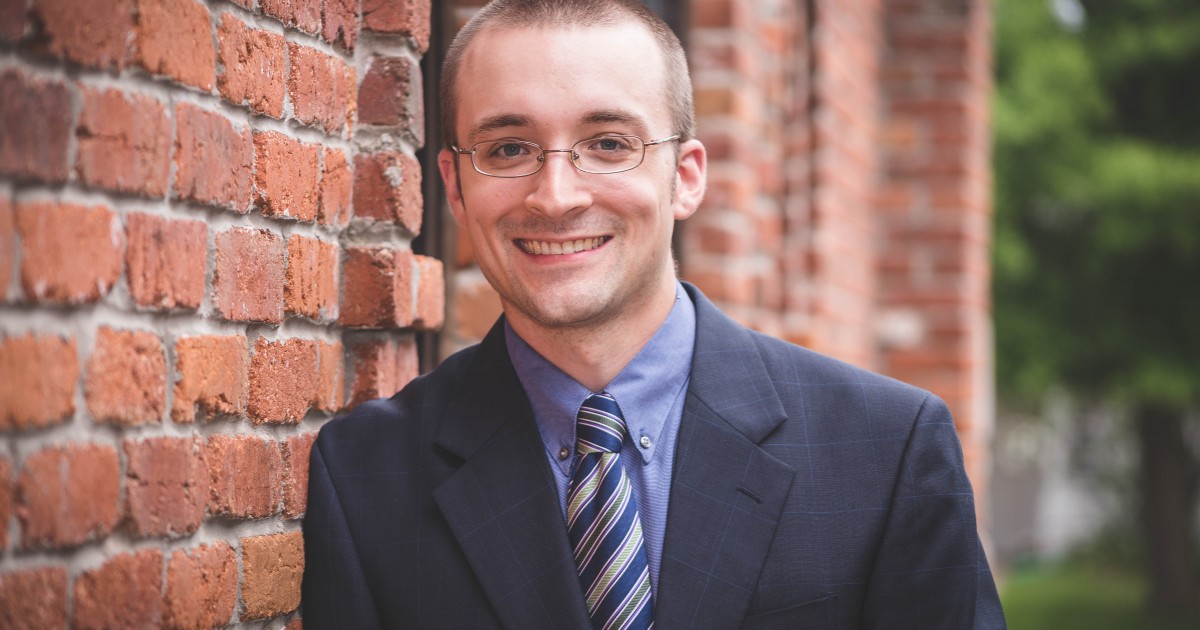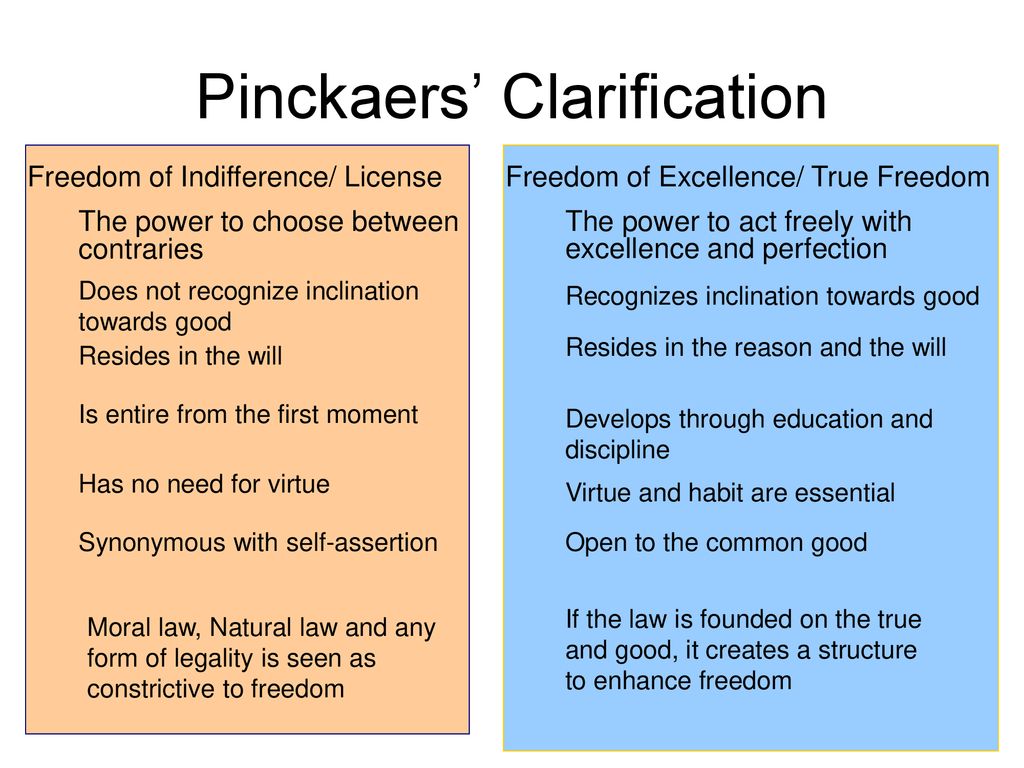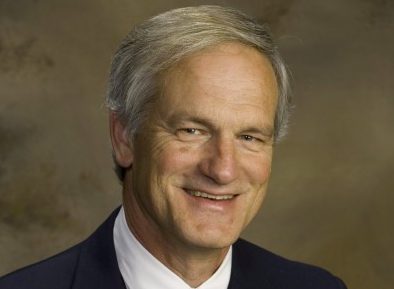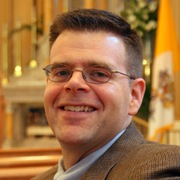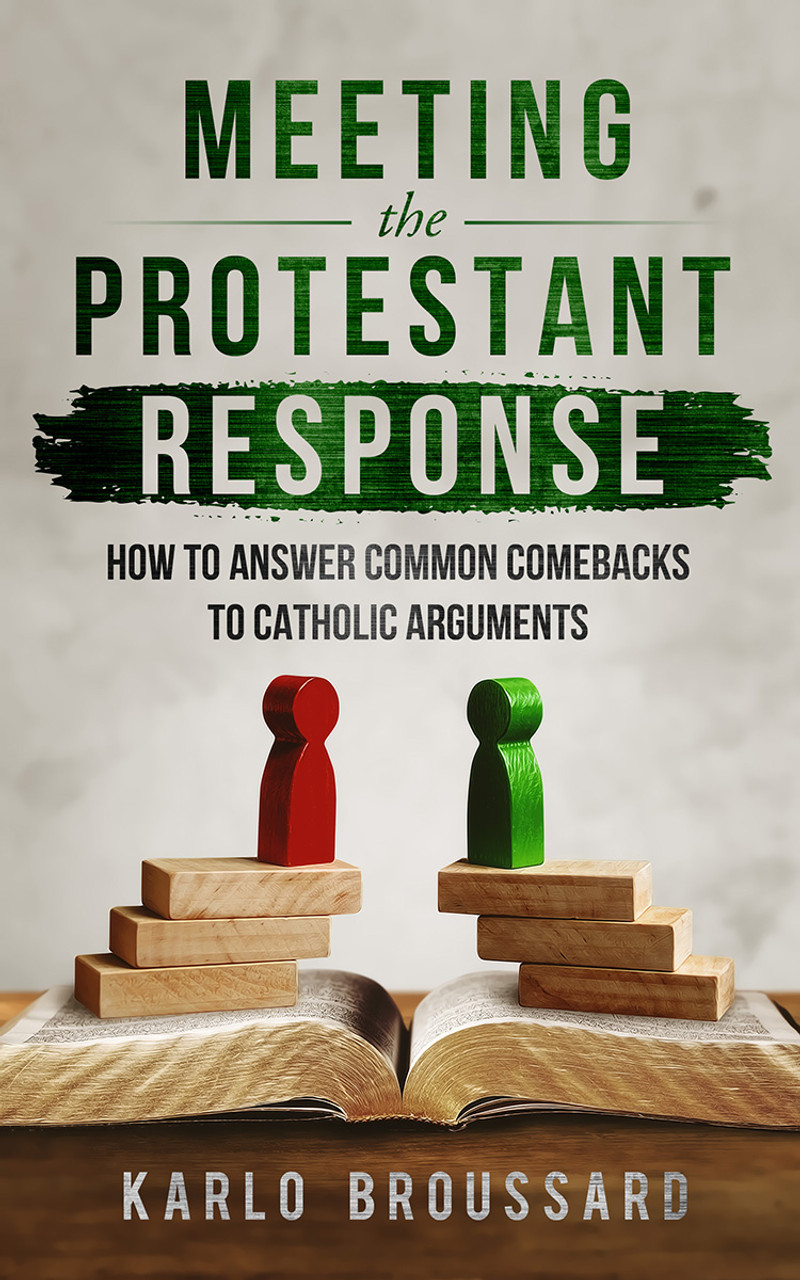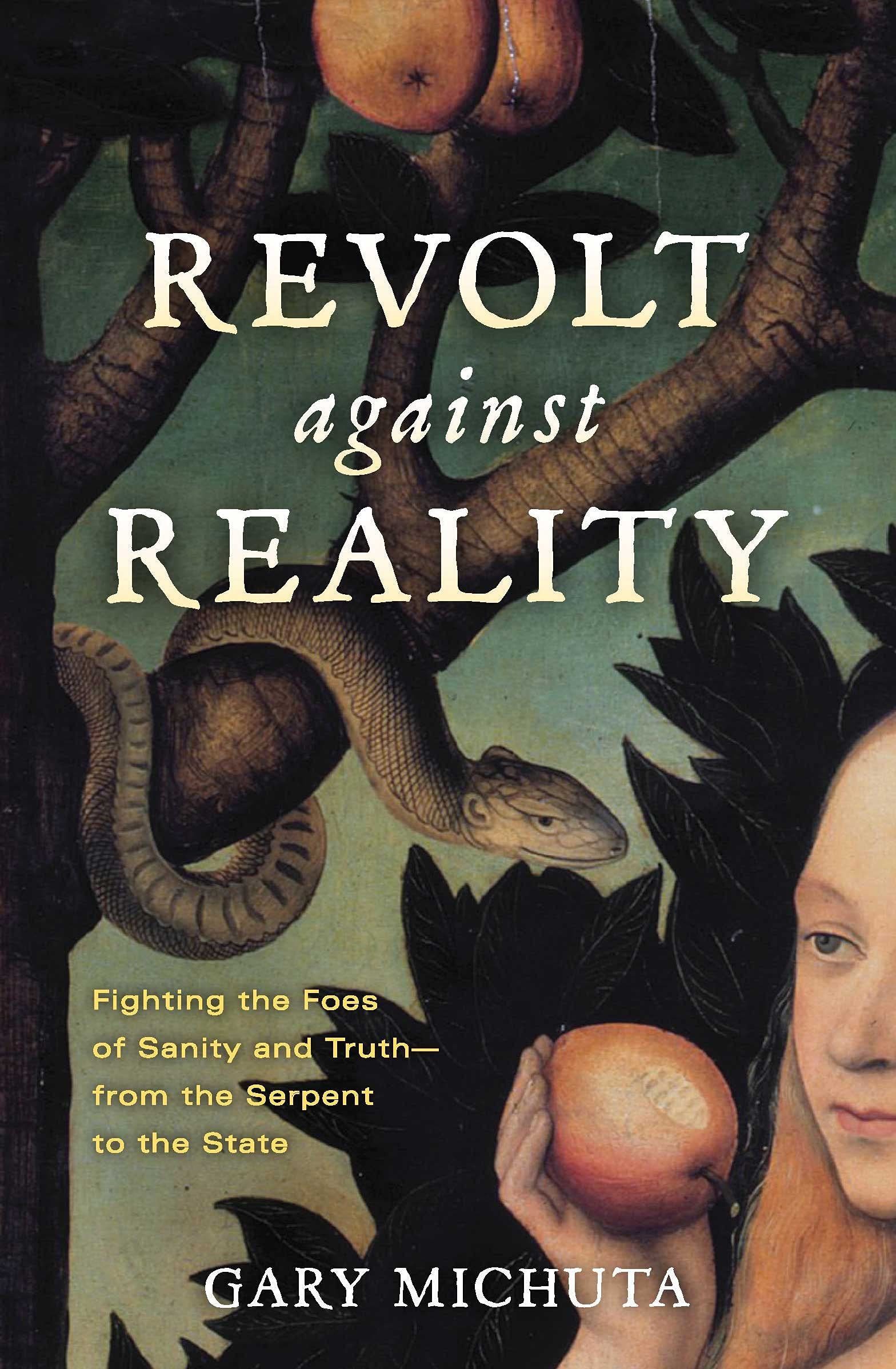

mortification = mors (death) + facere (to make)
“A sculptor who wishes to carve a figure out of a block uses his chisel, first cutting away great chunks of marble, then smaller pieces, until he finally reaches a point where only a brush of hand is needed to reveal the figure. In the same way, the soul has to undergo tremendous mortifications at first, and then more refined detachments, until finally its Divine image is revealed. Because mortification is recognized as a practice of death, there is fittingly inscribed on the tomb of Duns Scotus, Bis Mortus; Semel Sepultus (twice died, but buried only once). When we die to something, something comes alive within us. If we die to self, charity comes alive; if we die to pride, service comes alive; if we die to lust, reverence for personality comes alive; if we die to anger, love comes alive.”
—Fulton J. Sheen, p. 219, Peace of Soul
“Where there is no obedience there is no virtue, where there is no virtue there is no good, where there is no good there is no love, where there is no love, there is no God, and where there is no God there is no Paradise.”
–Saint Padre Pio of Pietrelcina
St Thomas Aquinas, OP, reminds us that, “Three things are necessary for the salvation of man: to know what he ought to believe, to know what he ought to desire, and to know what he ought to do.” Everyone is called to work toward their salvation (Phil 2:12), which is ultimately union with God. Those who take this call seriously must embark upon a journey inward to the deepest recesses of their soul. In the adventure and wonder of that journey, we work out the details of our union with our Beloved. We cling to what we need to believe, remain firm in what we truly desire, and are guided by what we know we have to do.
“Cowardice asks the question is it safe? Expediency asks the question is it politic? Vanity asks the question is it popular. But conscience asks the question is it right? And there comes a time when one must take a position that is neither safe, nor politic, nor popular; but one must take it because it is right.”
—Martin Luther King Jr
“When tempted, invoke your Angel. He is more eager to help you than you are to be helped! Ignore the devil and do not be afraid of him: He trembles and flees at the sight of your Guardian Angel.”
-St. John Bosco
“Expect temptation to your last breath.”
-Saint Anthony the Great
“Only saints can save the world. And only our own sins can stop us from being saints.”
-Peter Kreeft
“Satan always tempts the pure – the others are already his.”
-Archbishop Fulton Sheen
“We always find that those who walked closest to Christ were those who had to bear the greatest trials.”
-Saint Teresa of Ávila
“Only those who do not fight are never wounded.”
-Saint John Chrysostom
“The dragon sits by the side of the road, watching those who pass. Beware lest he devour you. We go to the Father of Souls, but it is necessary to pass by the dragon.”
-
Saint Cyril of Jerusalem
“Mary, I give you my heart. Always keep it yours. Jesus, Mary, always be my friends. I beg you, let me die rather than be so unfortunate as to commit a single sin.”
-Saint Dominic Savio
“Evil can only win if you let evil in.”
-Emmalyn Elsen
“Virtue is nothing without the trial of temptation, for there is no conflict without an enemy, no victory without strife.”
-St. Leo the Great
“Let the enemy rage at the gate; let him knock, pound, scream, howl; let him do his worst. We know for certain that he cannot enter our soul except by the door of our consent.”
-Saint Francis de Sales
“The devil is like a rabid dog tied to a chain; beyond the length of the chain he cannot seize anyone. And you: keep at a distance. If you approach too near, you let yourself be caught. Remember that the devil has only one door by which to enter the soul: the will.”
-Saint Padre Pio
“If only we could see the joy of our guardian angel when he sees us fighting our temptations!”
-Saint John Vianney
“Must you continue to be your own cross?”
-Saint Jane Frances de Chantal
“One of our sure guides along the path of life is that we do not know when earthly life will come to an end. How important that our repentance for past and present transgressions be a daily practice.”
-Rev. Thomas J. Donaghy
“He who seeks not the Cross of Christ seeks not the glory of Christ.”
–St. John of the Cross
“He did not say: You will not be troubled – you will not be tempted – you will not be distressed. But He did say: “You will not be overcome”.”
-Saint Julian of Norwich
“We follow a guy who was hated, mocked, tortured, imprisoned, and killed… Should we expect anything less? Sin starts and ends with you.
”
-Jack Trembath
“This is the great work of a man; always to take the blame for his own sins before God and to expect temptation to his last breath.”
-St. Anthony the Great
“If you are going to worship a guy who was crucified, don’t expect life to be pop and Skittles.”
-
Mark Shea
“You can’t do God’s work without suffering.”
-
Blessed Mother Teresa
“For because He Himself has suffered when tempted, He is able to help those who are being tempted” (Hebrews 2:18)
“Expect temptation to your last breath.”
-Saint Anthony the Great
“The Devil never runs upon a man to seize him with his claws until he sees him on the ground, already having fallen by his own will.”
-St. Thomas More
“This is the great work of a man; always to take the blame for his own sins before God and to expect temptation to his last breath.”
-St. Anthony the Great
“Only saints can save the world. And only our own sins can stop us from being saints.”
-Peter Kreeft
“Satan always tempts the pure – the others are already his.”
-Archbishop Fulton Sheen
“‘Tis one thing to be tempted, another thing to fall.”
-
William Shakespeare
“Hence instead of allowing ourselves to become discouraged and fainthearted under trials which may seem to overwhelm us, let us act in the same way as we do when our bodies are sick, consult a good doctor—a good spiritual director—and applying the remedies he advises, patiently await the effects that it pleases God to give. Everything is meant for our good, and such trials ought to be counted as special graces from God. Whether or not they are sent as a punishment for our sins, they come from Him and we should thank Him for them, placing ourselves entirely in His hands. If we bear them with patience we shall receive greater grace than if we were filled with a sense of fervent devotion.”
—Jean Baptiste Saint-Jure, Trustful Surrender to Divine Providence
“A sculptor who wishes to carve a figure out of a block uses his chisel, first cutting away great chunks of marble, then smaller pieces, until he finally reaches a point where only a brush of hand is needed to reveal the figure. In the same way, the soul has to undergo tremendous mortifications at first, and then more refined detachments, until finally its Divine image is revealed. Because mortification is recognized as a practice of death, there is fittingly inscribed on the tomb of Duns Scotus, Bis Mortus; Semel Sepultus (twice died, but buried only once). When we die to something, something comes alive within us. If we die to self, charity comes alive; if we die to pride, service comes alive; if we die to lust, reverence for personality comes alive; if we die to anger, love comes alive.”
—Fulton J. Sheen, Peace of Soul
“Where there is no obedience there is no virtue, where there is no virtue there is no good, where there is no good there is no love, where there is no love, there is no God, and where there is no God there is no Paradise.”
–Saint Padre Pio of Pietrelcina
“When I see that the burden is beyond my strength, I do not consider or analyze it or probe into it, but I run like a child to the Heart of Jesus and say only one word to Him: ‘You can do all things.’”
—St. Faustina Kowalska, Diary
mortification = mors (death) + facere (to make)
“Above all, it is necessary to ask of God every morning the gift of perseverance, and to beg of the Blessed Virgin to obtain it for you, and particularly in the time of temptation, by invoking the name of Jesus and Mary as long as the temptation lasts. Happy the man who will continue to act in this manner, and shall be found so doing when Jesus Christ shall come to judge him. ‘Blessed is that servant, whom, when his Lord shall come, he shall find so doing’ (Matt. 24:46).”
—St. Alphonsus De Liguori, Sermons
“I never found anyone so religious and devout as not to have sometimes a subtraction of grace, or feel a diminution of fervor. No saint was ever so highly rapt and illuminated as not to be tempted sooner or later. For he is not worthy of the high contemplation of God who has not, for God’s sake, been exercised with some tribulation. For temptation going before is usually a sign of ensuing consolation. For heavenly comfort is promised to such as have been proved by temptation. To him that overcometh, saith our Lord, I will give to eat of the tree of life.”
—Thomas à Kempis, Imitation of Christ
“The Devil didn’t deal out temptations to Our Lord only. He brings these evil schemes of his to bear on each of Jesus’ servants—and not just on the mountain or in the wilderness or when we’re by ourselves. No, he comes after us in the city as well, in the marketplaces, in courts of justice. He tempts us by means of others, even our own relatives. So what must we do? We must disbelieve him altogether, and close our ears against him, and hate his flattery. And when he tries to tempt us further by offering us even more, then we should shun him all the more. . . We aren’t as intent on gaining our own salvation as he is intent on achieving our ruin. So we must shun him, not with words only, but also with works; not in mind only, but also in deed. We must do none of the things that he approves, for in that way will we do all those things that God approves. Yes, for the Devil also makes many promises, not so that he may give them to us, but so that he may take away from us. He promises plunder, so that he may deprive us of the kingdom of God and of righteousness. He sets out treasures in the earth as snares and traps, so that he may deprive us both of these and of the treasures in heaven. He would have us be rich in this life, so that we may not be rich in the next.”
—St. John Chrysostom
“Now there’s no one who approaches God with a true and upright heart who isn’t tested by hardships and temptations. So in all these temptations see to it that even if you feel them, you don’t consent to them. Instead, bear them patiently and calmly with humility and long suffering.”
—St. Albert the Great
“Be patient, because the weaknesses of the body are given to us in this world by God for the salvation of the soul. So they are of great merit when they are borne patiently.”
–St. Francis of Assisi
“There is nothing to be dreaded in human ills except sin—not poverty, or disease, or insult, or ill treatment, or dishonor, or death, which people call the worst of evils. To those who love spiritual wisdom, these things are only the names of disasters, names that have no substance. No, the true disaster is to offend God, to do anything that displeases Him.”
—St. John Chrysostom
“If you invoke the Blessed Virgin when you are tempted, she will come at once to your help, and Satan will leave you.”
— St. John Vianney
“As the pilot of a vessel is tried in the storm; as the wrestler is tried in the ring, the soldier in the battle, and the hero in adversity: so is the Christian tried in temptation.”
–St. Basil the Great
“When an evil thought is presented to the mind, we must immediately endeavor to turn our thoughts to God, or to something which is indifferent. But the first rule is, instantly to invoke the names of Jesus and Mary and to continue to invoke them until the temptation ceases. He who trusts in himself is lost. He who trusts in God can do all things.”
–St. Alphonsus Liguori
“Temptation to a certain sin, to any sin whatsoever, might last throughout our whole life, yet it can never make us displeasing to God’s Majesty provided we do not take pleasure in it and give consent to it. You must have great courage in the midst of temptation. Never think yourself overcome as long as they are displeasing to you, keeping clearly in mind the difference between feeling temptation and consenting to it.”
—St. Francis de Sales, Fulfillment of All Desire
“With regard to evil thoughts, there may be a twofold delusion. God-fearing souls who have little or no gift of discernment, and are inclined to scruples, think that every wicked thought that enters their mind is a sin. This is a mistake, for it is not the wicked thoughts in themselves that are sins, but the yielding or consenting to them. The wickedness of mortal sin consists in the perverse will that deliberately yields to sin with a complete knowledge of its wickedness with full consent. And therefore St. Augustine teaches that when the consent of the will is absent, there is no sin. However much we may be tormented by temptations, the rebellion of the senses, or the inordinate motions of the inferior part of the soul, as long as there is no consent, there is no sin. For the comfort of such anxious souls, let me suggest a good rule of conduct that is taught by all masters in the spiritual life. If a person who fears God and hates sin doubts whether or not he has consented to an evil thought or not, he is not bound to confess it, because it is morally certain that he has not given consent. For had he actually committed a mortal sin, he would have no doubt about it, as mortal sin is such a monster in the eyes of one who fears God that its entrance into the heart could not take place without its being known. Others, on the contrary, whose conscience is lax and not well-informed, think that evil thoughts and desires, though consented to, are not sins provided they are not followed by sinful actions. This error is worse than the one mentioned above. What we may not do, we may not desire. Therefore an evil thought or desire to which we consent comprises in itself all the wickedness of an evil deed.”
—St. Alphonsus Liguori
“Thus sin renders the soul miserable, weak and torpid, inconstant in doing good, cowardly in resisting temptation, slothful in the observance of God’s commandments. It deprives her of true liberty and of that sovereignty which she should never resign; it makes her a slave to the world, the flesh, and the devil; it subjects her to a harder and more wretched servitude than that of the unhappy Israelites in Egypt or Babylon. Sin so dulls and stupefies the spiritual senses of man that he is deaf to God’s voice and inspirations; blind to the dreadful calamities which threaten him; insensible to the sweet odor of virtue and the example of the saints; incapable of tasting how sweet the Lord is, or feeling the touch of His benign hand in the benefits which should be a constant incitement to his greater love. Moreover, sin destroys the peace and joy of a good conscience, takes away the soul’s fervor, and leaves her an object abominable in the eyes of God and His saints. The grace of justification delivers us from all these miseries. For God, in His infinite mercy, is not content with effacing our sins and restoring us to His favor; He delivers us from the evils sin has brought upon us, and renews the interior man in his former strength and beauty. Thus He heals our wounds, breaks our bonds, moderates the violence of our passions, restores with true liberty the supernatural beauty of the soul, reestablishes us in the peace and joy of a good conscience, reanimates our interior senses, inspires us with ardor for good and a salutary hatred of sin, makes us strong and constant in resisting evil, and thus enriches us with an abundance of good works. In fine, He so perfectly renews the inner man with all his faculties that the Apostle calls those who are thus justified new men and new creatures.”
—Venerable Louis Of Grenada
“Many try to fly away from temptations only to fall more deeply into them; for you cannot win a battle by mere flight. It is only by patience and humility that you will be strengthened against the enemy. Those who shun them outwardly and do not pull them out by the roots will make no progress; for temptations will soon return to harass them and they will be in a worse state. It is only gradually—with patience and endurance and with God’s grace—that you will overcome temptations sooner than by your own efforts and anxieties . . . Gold is tried by fire and the upright person by temptation. Often we do not know what we can do until temptation shows us what we are . . . This is how temptation is: first we have a thought, followed by strong imaginings, then the pleasure and evil emotions, and finally consent. This is how the enemy gains full admittance, because he was not resisted at the outset. The slower we are to resist, the weaker we daily become and the stronger the enemy is against us.”
—Thomas à Kempis, Imitation of Christ
“Above all, it is necessary to ask of God every morning the gift of perseverance, and to beg of the Blessed Virgin to obtain it for you, and particularly in the time of temptation, by invoking the name of Jesus and Mary as long as the temptation lasts. Happy the man who will continue to act in this manner, and shall be found so doing when Jesus Christ shall come to judge him. ‘Blessed is that servant, whom, when his Lord shall come, he shall find so doing’ (Matt. 24:46).”
—St. Alphonsus De Liguori, Sermons of St Alphonsus Liguori
“St. Augustine says, that to prevent the sheep from seeking assistance by her cries, the wolf seizes her by the neck, and thus securely carries her away and devours her. The Devil acts in a similar manner with the sheep of Jesus Christ. After having induced them to yield to sin, he seizes them by the throat, that they may not confess their guilt; and thus he securely brings them to Hell. For those who have sinned grievously, there is no means of salvation but the confession of their sins.”
— St. Alphonsus Liguori, p. 138, Sermons of St Alphonsus Liguori
“Our days in this life provide a season for God to test, purify, strengthen, and perfect us, making us fit to live with Him forever in heaven. To that end, the demons serve as useful tools for Him as they constantly test us by tempting us, so that we become purer and stronger and closer to perfection every time we resist the temptation.” —Paul Thigpen, Manual for Spritual Warfare
“The Devil didn’t deal out temptations to Our Lord only. He brings these evil schemes of his to bear on each of Jesus’ servants—and not just on the mountain or in the wilderness or when we’re by ourselves. No, he comes after us in the city as well, in the marketplaces, in courts of justice. He tempts us by means of others, even our own relatives. So what must we do? We must disbelieve him altogether, and close our ears against him, and hate his flattery. And when he tries to tempt us further by offering us even more, then we should shun him all the more. . . We aren’t as intent on gaining our own salvation as he is intent on achieving our ruin. So we must shun him, not with words only, but also with works; not in mind only, but also in deed. We must do none of the things that he approves, for in that way will we do all those things that God approves. Yes, for the Devil also makes many promises, not so that he may give them to us, but so that he may take away from us. He promises plunder, so that he may deprive us of the kingdom of God and of righteousness. He sets out treasures in the earth as snares and traps, so that he may deprive us both of these and of the treasures in heaven. He would have us be rich in this life, so that we may not be rich in the next.”
—St. John Chrysostom
“The devil tempts that he may ruin; God tests that He may crown.”
— St. Ambrose
Then the devil took Him to the holy city and had him stand on the highest point of the temple. “If you are the Son of God,” he said, “throw Yourself down. For it is written: “’He will command his angels concerning You, and they will lift You up in their hands, so that You will not strike your foot against a stone.’” -Mt 4:5-6
Love,
Matthew

